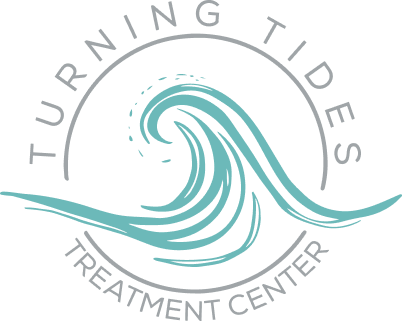EMDR Therapy in Orange County, CA
The National Institute on Drug Abuse (NIDA), the top federal agency that supports scientific research and studies on the use of drugs and their consequences, reports that over 20 million individuals in the U.S. received a diagnosis in the past year for substance use disorder (SUD). Only around 10.3% of people with past-year substance use disorder received treatment.
For many people who struggle with addiction, just considering going to treatment can be overwhelming. Struggling with addiction is a personal battle that requires strength and courage. It requires professional treatment, just like any other disease.
Without treatment, the addiction can become worse. One particular treatment often used in addiction treatment is eye movement desensitization and reprocessing (EMDR) therapy. Learn more about Turning Tide’s EMDR therapy in Irvine, CA.
What is EMDR?
EMDR therapy in Orange County is a type of therapy many healthcare professionals use to treat addiction and trauma. It’s a form of cognitive behavioral therapy (CBT) that assists people with changing the way they think and respond to addictive behavior triggers.
While traditional psychotherapy methods employ a combination of medications and talk therapy to help people, EMDR uses the person’s eye movements to desensitize and assist them in reprocessing the emotional stress linked with a traumatic experience or event. Now, EMDR is frequently being used in various therapeutic settings, including being integrated into the treatment approach for certain people with addiction and co-occurring mental illness or trauma.
EMDR works on the suggestion that your brain has natural healing abilities. When people go through a traumatic event, their brain frequently has challenges moving past this trauma. This can result in issues later on in life.
Eye movement desensitization and reprocessing therapy help the brain:
- Recognize the traumatic event
- Move past the traumatic event
- Heal itself
EMDR therapy for addiction works just as effectively as it does for the treatment of trauma. EMDR is just as effective as traditional CBT in decreasing symptoms of PTSD and substance abuse in individuals with co-occurring disorders.
A Closer Look at EMDR’s Mechanism: Bilateral Stimulation and Emotional Healing
EMDR therapy is renowned for its unique use of bilateral stimulation, a process that is pivotal in treating addiction and associated mental health conditions. This technique facilitates the desensitization of drug-specific memories and traumatic events, enabling individuals to move past their emotional distress. Our family therapists and licensed marriage and family therapists (LMFTs) are skilled in guiding clients through this process, ensuring that each session contributes to their journey toward emotional resilience and well-being.
From Negative Beliefs to Positive Futures: The Role of EMDR in Treatment Interventions
At Turning Tides Treatment Center, EMDR therapy is integral to our suite of treatment interventions designed to combat addiction and its root causes. By addressing negative self-beliefs and emotional distress directly, EMDR helps individuals reconstruct their perception of themselves and their experiences. This transformation is crucial for individuals who have spent years trapped in cycles of addiction, allowing them to envision a future free from the burdens of their past.
Benefits of EMDR
EMDR provides people struggling with addiction with the following benefits:
1. Addresses Addiction and Trauma
Addiction and trauma frequently go hand in hand. Many people use substances to cope or deal with the emotional challenges of a trauma they’ve experienced. In this situation, figuring out and treating the root cause could be more effective than treating the addiction alone.
EMDR therapy helps people distinguish situations that their brains and bodies could have registered as trauma. When you work with an EMDR therapist, it allows you to process the memories rather than suppress them. Often, identifying the leading cause of the addiction will allow further treatment to be more effective.
2. Desensitizes Drug-Specific Memories
In some cases, addiction isn’t linked with trauma but rather with a reward — the high. Memories of pleasurable emotions and feelings that are related to the use of drugs can trigger cravings.
EMDR helps desensitize these pleasurable memories. It helps to rewire your central nervous system allowing it to break the patterns linked with rewards and addiction. In other words, imagery and thoughts linked to your addiction won’t feel as relentless and intense.
3. Treats Various Conditions Linked with a Dual Diagnosis
Around 50% of people with serious mental disorders also struggle with substance abuse. It’s unclear which disorder caused the other or which one came first.
But, it’s not necessary to understand the appearance order for effective treatment. All that is important is ensuring that a healthcare professional addresses the addiction and any co-occurring mental illness.
EMDR helps treat a variety of mental health disorders, including:
- Panic disorders
- Eating disorders
- Anxiety
- Depression
- Trauma
In addition to these benefits, EMDR sessions integrate well with various other treatments and therapies. While several medications and therapies are available to treat co-occurring mental health disorders and addiction, not all people can take medication. Also, one approach to treating addiction isn’t typically effective on its own. EMDR therapy in Orange County can be combined with other treatments, which include medication.
EMDR for Addiction Treatment
EMDR therapy has been found effective for treating people who struggle with addiction. It’s been found to help people:
- Decrease depression and anxiety
- Reduce PTSD symptoms and traumatic memories
- Improve coping skills
- Manage addiction-related triggers
- Increase self-esteem
The use of EMDR therapy sessions for treating addiction results in many addictions being linked to past traumas. The belief is that by providing treatment for the trauma, people struggling with addiction will experience less compulsion or urge toward substances.
There are eight treatment phases in EMDR:
- Phase 1: Identifying emotional distress
- Phase 2: Imagery and stress reduction methods
- Phases 3-6: Identifying negative self-beliefs, related emotions, and vivid visuals
- Phases 7-8: Self-calming techniques; patient's progress is examined by the therapist
Healthcare professionals using EMDR therapy typically approach an individual’s addiction from a trauma-informed perspective. Doing this enables them to evaluate every case individually and identify the contributing factors and root causes of each person’s addiction. This is where EMDR can play a significant role in addiction treatment.
Healthcare professionals will frequently use EMDR for addiction together with other types of treatment, such as a 12-step program or traditional talk therapy. This helps offer a well-rounded approach to the individual’s addiction treatment plan, helping to meet their unique needs.
The EMDR Approach to Life Experiences and Emotional Response
EMDR therapy doesn’t just address the immediate symptoms of addiction and trauma; it also offers a profound healing journey for individuals grappling with negative beliefs and emotional responses stemming from their life experiences. At Turning Tides Treatment Center, our licensed therapists, including LMFTs and LPCCs, utilize EMDR to help clients process and overcome the challenges of their past. This therapy is particularly beneficial for those suffering from panic attacks, phobias, and dissociative symptoms, providing a pathway to well-being through the reprocessing of painful memories and the fostering of positive self-beliefs.
Integrative Therapies for Dual Diagnosis: A Comprehensive Approach
Recognizing the intertwined nature of mental health disorders and substance abuse, our treatment plans at Turning Tides Treatment Center are designed for those facing the complexities of a dual diagnosis. EMDR therapy plays a crucial role in this integrative approach, addressing conditions such as panic disorders, eating disorders, anxiety, depression, and trauma. Through the bilateral stimulation techniques of EMDR, alongside traditional therapies like CBT and DBT, we offer a holistic treatment experience aimed at enhancing the healing process and promoting lasting recovery.

EMDR with Turning Tides
If you or a loved one is suffering from addiction, EMDR therapy may be an excellent approach. At Turning Tides, we integrate EMDR therapy into a comprehensive addiction treatment program. Our program is set up to meet each person’s unique needs that will help them on their journey to recovery.
We’re a residential-detox facility that provides several different treatments, including Cognitive behavioral therapy (CBT), Dialectical behavior therapy (DBT), family therapy, and EMDR for trauma. These treatments are on top of both individual and group therapy.
Contact us today to learn more about how EMDR therapy in orange county can help you or your loved one overcome addiction and get on the path to recovery.
Clinically Reviewed by:

Matthew is a licensed marriage and family therapist and clinical supervisor in Orange County, California. Matthew has an extensive history working with the substance abuse and mental health population and is committed to client care with an ethical approach to treatment. Matthew utilizes a solution-focused, cognitive behavioral approach to therapy. He emphasizes the importance of creating a recovery environment which supports deep and meaningful sober connection, a system of accountability, daily structure and healthy routine, and an aftercare plan which will support continued sobriety post-treatment.
